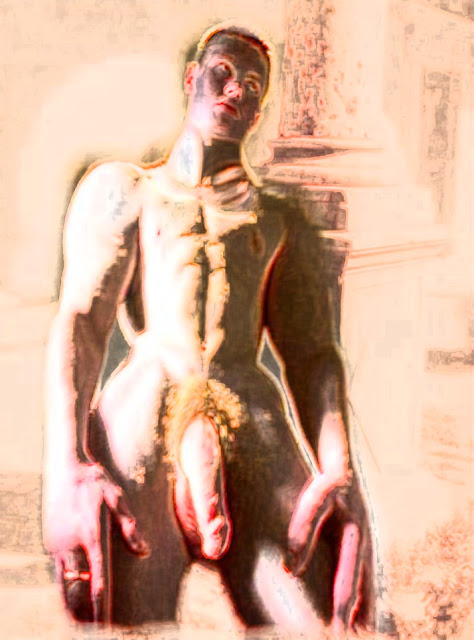Andrew Wilson / Patricia Highsmith
DOING DRAG WITH HIGHSMITH
—Carl Rollyson, Beautiful Shadow:
A Life of Patricia Highsmith by
Andrew Wilson, Reading Biography
__________________
Doing drag like Ripley does in a gay Berlin disco in Highsmith’s novel The Boy Who Followed Ripley— sets the stage somewhat for something rather seemingly self-indulgent, I must say my dears, for the esteemed biographer Andrew Wilson.
Where on earth did Mr. Wilson dredge up “Pat’s old dressing gown”—and why for heaven’s sake would a biographer even want to try Highsmith’s dressing gown on, my dears?
Was it to get some deeper more-biographical feeling for the brilliant lesbian authoress—slipping it on, for example, in the British Museum stacks or the compy executor’s boudoir or perhaps there in her Swiss estate converted into some kind of Yaddo writer’s getaway?
Or was it perhaps more authorial—slipping on the old night gown to get the feeling for Tom Ripley’s penchant being an imposter posing as somebody else such as in The Talented Mr. Ripley?
What better way to get to know Tom Ripley than through Patricia Highsmith’s very own dressing gown that she schlepped around the mansion in or typed away in her bedroom-study doing her masterpieces of murder and suspense?
It simply boggles the reader’s imagination to ponder the possibilities of just how deeply a Biographer would want to delve—in order to essentially “do drag” in order to become the biographical Subject herself, right down to the very dressing gown Highsmith slouched around in her cold dark Swiss mansion.






